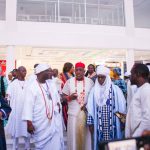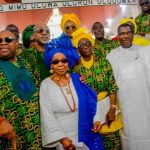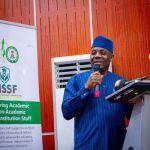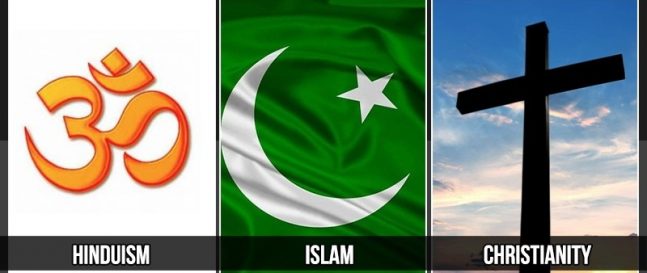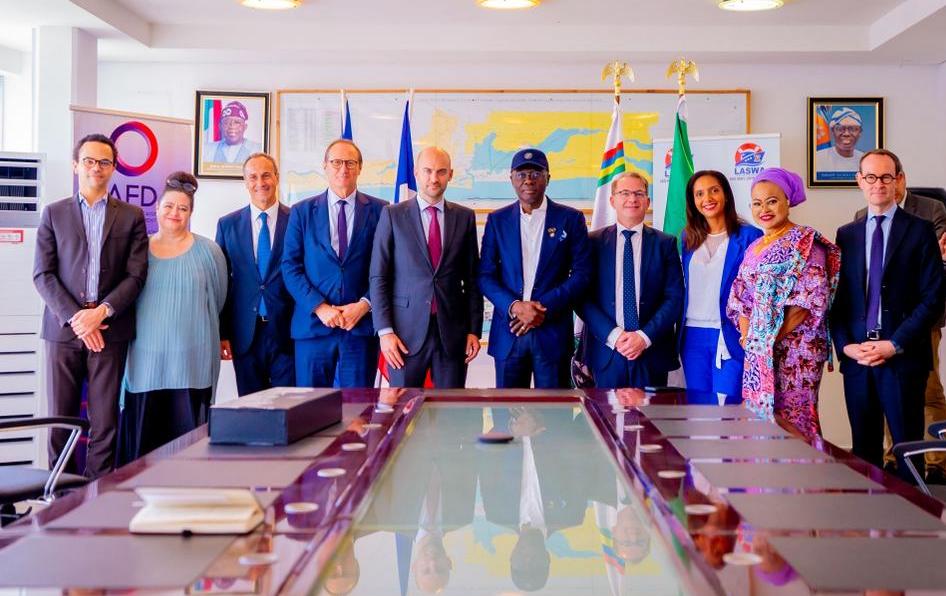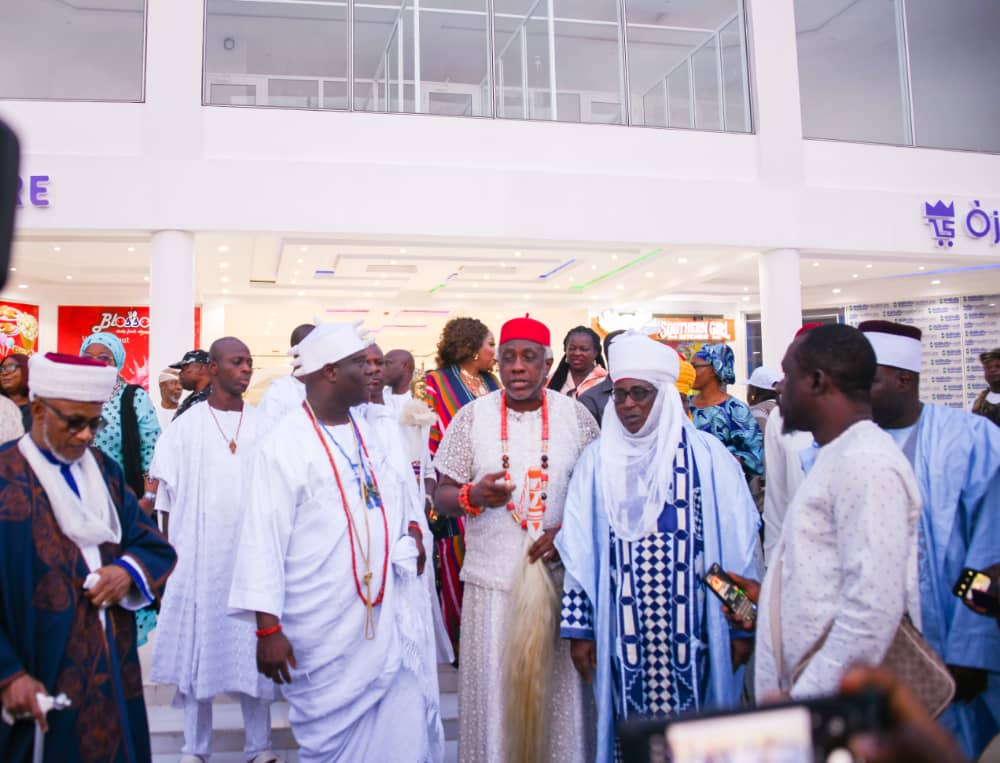The Presidency on Saturday released a comprehensive list of the beneficiaries of President Bola Ahmed Tinubu’s presidential pardon, clemency and commutation of sentences to 175 convicts and former convicts, which was released on Thursday after the National Council of State meeting.
A statement by Special Adviser to the President on Information and Strategy, Bayo Onanuga, gave an exhaustive breakdown of the categories of the President’s prerogatives, comprising full pardons, posthumous pardons, clemency, sentence reductions and commutations from death to life imprisonment.
The exercise of mercy for the 175 convicts and former convicts, including military officers, public officials, remorseful drug offenders, illegal miners, and foreigners, followed the recommendation of the Presidential Advisory Committee on the Prerogative of Mercy chaired by the Attorney-General of the Federation and Minister of Justice, Prince Lateef Olasunkanmi Fagbemi.
The committee’s report, as presented by Fagbemi, recommended various forms of reprieve: pardon for 17 persons (including 11 posthumously), clemency for 82 inmates, commutation of sentences for 65, and conversion of death sentences to life imprisonment for seven others.
According to the statement, President Tinubu granted mercy to many of the convicts for reasons including remorse, good conduct, old age, and enrolment in reform programmes such as the National Open University of Nigeria (NOUN).
Those granted full presidential pardon are Nweke Francis Chibueze, Dr. Nwogu Peters, Mrs. Anastasia Daniel Nwaoba, Barrister Hussaini Alhaji Umar, Ayinla Saadu Alanamu and Hon. Farouk M. Lawan.
President Tinubu also issued posthumous pardons to nationalist Sir Herbert Macaulay, whose 1913 colonial conviction has now been set aside; Major-General Mamman Jiya Vatsa, executed in 1986 over an alleged coup plot; and to the Ogoni Nine—Ken Saro-Wiwa, Saturday Dobee, Nordu Eawa, Daniel Gbooko, Paul Levera, Felix Nuate, Baribor Bera, Barinem Kiobel and John Kpuine—who were executed in 1995.
The Presidency separately honoured the victims in the Ogoni case—Chief Albert Badey, Chief Edward Kobaru, Chief Samuel Orage and Chief Theophilus Orage—while making clear they are not beneficiaries of the clemency or pardon.
Eighty-two inmates received presidential clemency after demonstrating remorse, reform or other qualifying circumstances, among whom was and Maryam Sanda, who was convicted and sentenced to death by hanging by Justice Yusuf Halilu at the Federal Capital Territory High Court in Abuja for the murder of her husband, Bilyaminu Bello, in November 2017.
Sanda’s sentence was later upheld by the Court of Appeal on December 4, 2020.
Others who received presidential clemency included Aluagwu Lawrence; Ben Friday; Oroke Michael Chibueze; Kelvin Christopher Smith; Azubuike Jeremiah Emeka; Akinrinnade Akinwande Adebiyi; Ahmed Adeyemo; Adeniyi Jimoh; Seun Omirinde; Adesanya Olufemi Paul; Ife Yusuf; Daniel Bodunwa; Fidelis Michael; Suru Akande; Safiyanu Umar; Dahiru Abdullahi; Hamza Abubakar; Rabiu Alhassan Dawaki; Mujibu Muhammad; Emmanuel Eze; Bala Azika Yahaya; Lina Kusum Wilson; and Buhari Sani. Others are Mohammed Musa; Muharazu Abubakar; Ibrahim Yusuf; Saad Ahmed Madaki; Ex-Corporal Michael Bawa; Richard Ayuba; Adam Abubakar; Emmanuel Yusuf; Edwin Nnazor; Chinedu Stanley; Joseph Nwanoka; Johnny Ntheru; John Omotiye; Nsikat Edet Harry; Jonathan Asuquo; Prince Samuel Peters; Babangida Saliu; Adamu Sanni; Abdulkarem Salisu; Abdulaziz Lawal; Abdulrahman Babangida; Maharazu Alidu; Zaharadeen Baliue; Babangida Usman; Zayyanu Abdullahi; Bashir Garuba; Imam Suleman; Abbeh Amisu; Lawani Lurwanu; Yusuf Alhassan; Abdulahi Isah; and Zayanu Bello.
Habeeb Suleman; Jubrin Sahabi; Shefiu Umar; Seidu Abubakar; Haruna Abubakar; Rabiu Seidu; Macha Kuru; Zahradeen Aminu; Nazipi Musa; Abdullahi Musa; Habibu Safiu; Husseni Sani; Musa Lawali; Suleiman Lawal; Yusuf Iliyasu; Sebiyu Aliyu; Halliru Sani; Shittu Aliyu; Sanusi Aminu; Isiaka Adamu; Mamman Ibrahim; Shuaibu Abdullahi; Sanusi Adamu; Sadi Musa; Haruna Isah; and Abiodun Elemero also received presidential clemency.
The Presidency disclosed that Senator Ikra Aliyu Bilbis signed an undertaking to be responsible for the rehabilitation and empowerment of all the convicted illegal miners who were granted clemency.
In addition, sixty-five inmates had their terms of imprisonment reduced for reasons such as remorse, good conduct, educational attainment, age or ill-health.
Those whose sentences were reduced are Yusuf Owolabi; Ifeanyi Eze; Malam Ibrahim Sulaiman; Shettima Maaji Arfo; Ajasper Benzeger; Ifenna Kennechukwu; Mgbeike Matthew; Patrick Mensah; Obi Edwin Chukwu; Tunde Balogun; Lima Pereira Erick Diego; Uchegbu Emeka Michael; Salawu Adebayo Samsudeen; Napolo Osariemen; Patricia Echoe Igninovia; Odeyemi Omolaram; Vera Daniel Ifork; and Gabriel Juliet Chidimma.
Others are Dias Santos Marcia Christiana; Alhaji Ibrahim Hameed; Alhaji Nasiru Ogara Adinoyi; Chief Emeka Agbodike; Isaac Justina; Aishat Kehinde; Helen Solomon; Okoye Tochukwu; Ugwueze Paul; Mutsapha Ahmed; Abubakar Mamman; Muhammed Bello Musa; Nnamdi Anene; Alhaji Abubakar Tanko; Chisom Francis Wisdom; Innocent Brown Idiong; Iniobong Imaeyen Ntukidem; Ada Audu; Bukar Adamu; Kelvin Oniarah Ezigbe; Frank Azuekor; and Chukwukelu Sunday Calisthus.
Also affected are Professor Magaji Garba; Markus Yusuf; Samson Ajayi; Iyabo Binyoyo; Oladele Felix; Rakiya Beida; Nriagu Augustine Ifeanyi; Chukwudi Destiny; Felix Rotimi Esemokhai; Major S. A. Akubo; John Ibiam; Omoka Aja; Chief Jonathan Alatoru; Umanah Ekaette Umanah; Utom Obong Thomson Udoaka; Jude Saka Ebaragha; Frank Insort Abaka; Shina Alolo; Joshua Iwiki; David Akinseye; Ahmed Toyin; Shobajo Saheed; Adamole Philip; Mathew Masi; and Bright Agbedeyi.
Seven inmates on death row had their sentences commuted to life imprisonment on account of good conduct and remorse. They are Emmanuel Baba; Emmanuel Gladstone; Moses Ayodele Olorunfemi; Abubakar Usman; Khalifa Umar; Benjamin Ekeze; and Mohammed Umar.
The Presidency explained that the exercise covers a wide range of offences and circumstances—from narcotics and economic crimes to unlawful mining and homicide—and is intended to balance justice with compassion while acknowledging genuine efforts at reform.
It added that, beyond correcting individual cases, the exercise also addresses historic grievances such as the colonial conviction of Sir Herbert Macaulay and the 1995 executions in Ogoniland, even as the victims in that episode were formally honoured without being listed among the pardon or clemency beneficiaries.
Source: The Nation



